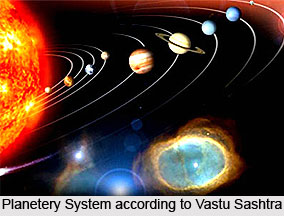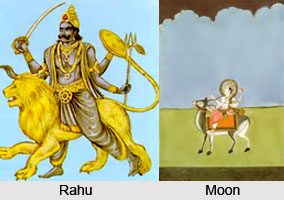 In accord to Astrology each planet has its good and bad effects in the life of a man. Every principle in Vastu Shastra is scientifically explained. As a result it is always referred to as the science of the Vedic Age. As the ebbs and tides in the sea are a result of the power of attraction and repulsion of the moon, similarly, the effects of the planets is observed on living as well as non living objects. Besides human beings the planets also affect the buildings too. Vastu Shastra discusses 8 major directions. Each direction is rules by different stars.
In accord to Astrology each planet has its good and bad effects in the life of a man. Every principle in Vastu Shastra is scientifically explained. As a result it is always referred to as the science of the Vedic Age. As the ebbs and tides in the sea are a result of the power of attraction and repulsion of the moon, similarly, the effects of the planets is observed on living as well as non living objects. Besides human beings the planets also affect the buildings too. Vastu Shastra discusses 8 major directions. Each direction is rules by different stars.
The direction or the sub-direction in which the main entrance of the building exists, the planet ruling that side influences the life of head of the family.
Ravi (Sun) - When the main entrance in a building is from the middle of the eastern side the head of the family will be ambitious, staunch and pious like the sun. He has a liking for bitter substances, such as, Methi, Karela, and Dodka etc.
Shani (Saturn) - When the main entrance of the building is from the middle of the west side, Saturn is the ruling planet here. in such houses the head of the family is generally serious, thoughtful and patient. They are very cautious and tenacious too. They like astringent, oily substances and cold drinks.
Budh (Mercury) - When the main entrance of a building is from the middle of the North Side the ruling planet of the North direction is Budh or Mercury. The head of the family of this house is very intelligent and fun loving. They also have a liking for reading and writing. They are quite punctual and are not very choosy as far as food is concerned.
Mangal (Mars) - When the building has the main entrance from the middle of the south direction the ruling planet in this direction is Mars. The nature of the head of the family in such building is often bold, fickle and short tempered. These people like oily and spicy foods.
 Guru (Jupiter) - Buildings with their main entrance in the North-East side of the east or the north direction have Guru as their ruling planet. The head of the family in such buildings is kind, thoughtful, altruistic and religious by nature. These people have a liking for studies, teaching, education and languages. They are liberal, generous and candid too. They are known for their sweet tongue.
Guru (Jupiter) - Buildings with their main entrance in the North-East side of the east or the north direction have Guru as their ruling planet. The head of the family in such buildings is kind, thoughtful, altruistic and religious by nature. These people have a liking for studies, teaching, education and languages. They are liberal, generous and candid too. They are known for their sweet tongue.
Shukra (Venus) - When the main entrance of a structure is in the South-East direction of the East or the South side the head of the family is a happy, voluptuous person the ruling planet here is Shukra. They are interested in entertainment and are often spendthrift. They have a liking for songs, music, films, drama and painting. They like scents, scented flowers and vibrant dresses. They like Curd, Cheese, Tamarind and others.
Rahu - Buildings that have their entrances in the South-West direction of the West or the South sides are said to be ruled by Rahu. The heads of the family in such buildings are hot headed, self conceited, cunning and scheming. They like hot, non vegetarian and even stale food.
Chandra (Moon) - Moon is the ruling planet of the houses whose main entrance is in the North-West side of the West or the North directions. The nature of the head of the family in such houses is fickle and emotional. They like travelling. As far as food is concerned they use more salt in their food and specially green vegetables.
When there more than one entrance or exit in a particular building then the overall impact of all the doors and windows will influence the nature, likes and dislikes of the head of the family. The effect of the ruling planet of the direction in which the doors and windows are facing is also observed on the head of the family and other members. If the Saturn and Mars are powerful in the horoscope of a person and if the main entrance of his building is in the South he will be definitely successful. This goes onto proof that the South direction is not unfavorable for everyone.
Different Zodiac Signs have varying effects on all the 8 directions. The sign corresponding to the direction in which the main entrance of the building is responsible to some extent for the success and failure of the owner of the structure. For instance, if the road is in the Eastern direction and the main entrance is also on the east side then the sun sign (Aries) corresponding to the east direction influences the head of the family to some extent.




















